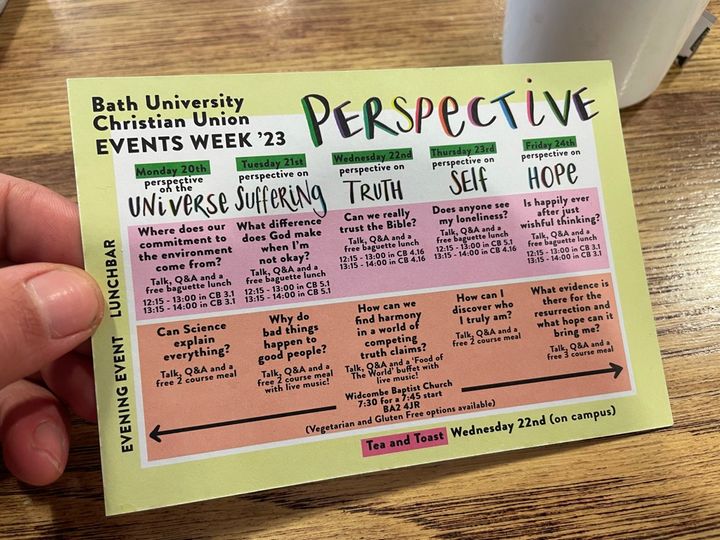
Picking talk titles can take time and effort, but it’s worth it — the titles are one of the most important parts of planning an Events Week. Before people attend an event they may have little idea about what will happen. One of the few ways that we can show hospitality to people before they even arrive is by picking titles that particularly engage them. A good title will communicate ‘You are welcome! We understand you! These events are for you!’ Conversely, a bad title will communicate ‘You’re not welcome. We don’t understand you. These events are for someone else.’
We need to think about what questions, concerns and desires the majority of students in our universities have. (See Understanding Your Context). It is important to note that these may not be specifically about God or faith. However, because the gospel connects to all of life, anything can be a bridge to the gospel.
Check out these diagnostic questions for you to consider, as a planning team, to help you reflect on your specific context.
Top Tips On Picking Talk Titles
- Connect the titles to the theme — it should be obvious how the individual titles connect to the theme of the week. It can be helpful to incorporate the theme wording into the title.
- Titles phrased as questions can be helpful. These are best if they are open questions (ones that you cannot answer yes/no) and questions that people would genuinely want to know the answer to (rather than them already assuming they know what you will say). Alternatively, statements starting with phrases like “How to…” or “Why…” can be intriguing and engaging.
- Make sure they connect. Get your friends to check out your suggested titles — would they entice them to want to come and hear the talk?
- Ensure they are clear, so that it is obvious what the talk will be about.
- Discuss choices with your speaker — deciding on the titles needs to be a collaboration. You must be happy with them, as you are inviting your friends. The speaker needs to be happy with them, because they will be giving the talk!
- Consider how the titles connect to passages in the gospel. It can be a good idea to base the talks from passages in the gospels. Discuss with your speaker which gospel you will use, and which passages they may want to pick. This will affect the order of your talks.
- Make sure there is good continuity. While each talk needs to stand alone and progress to the gospel, (some students will only come to one talk) they should also build on each other, (some students will come each day). Towards the end of the week it’s a good idea to pick titles that will most naturally take you to the heart of the gospel (the cross and resurrection of Jesus).
- Ensure a mix of the objective and the subjective. We need to communicate that the gospel is true, good and powerful. Different talks may emphasise one of these aspects more than the others. (For this reason, a talk connecting to the resurrection at the end of the week can be a great idea, as it shows both the truth, goodness and power of the gospel).
- If your titles don’t mention anything specifically Christian, make sure that it is clear on your publicity that the events are organised by the Christian Union! People shouldn’t then be surprised when we start talking about Jesus!
See here for examples from different Events Weeks
Things to do
- Communicate. As you decide on themes and titles, have an ongoing dialogue with your speaker.
- Feedback. Get thoughts and reflections from your friends about the titles you choose.